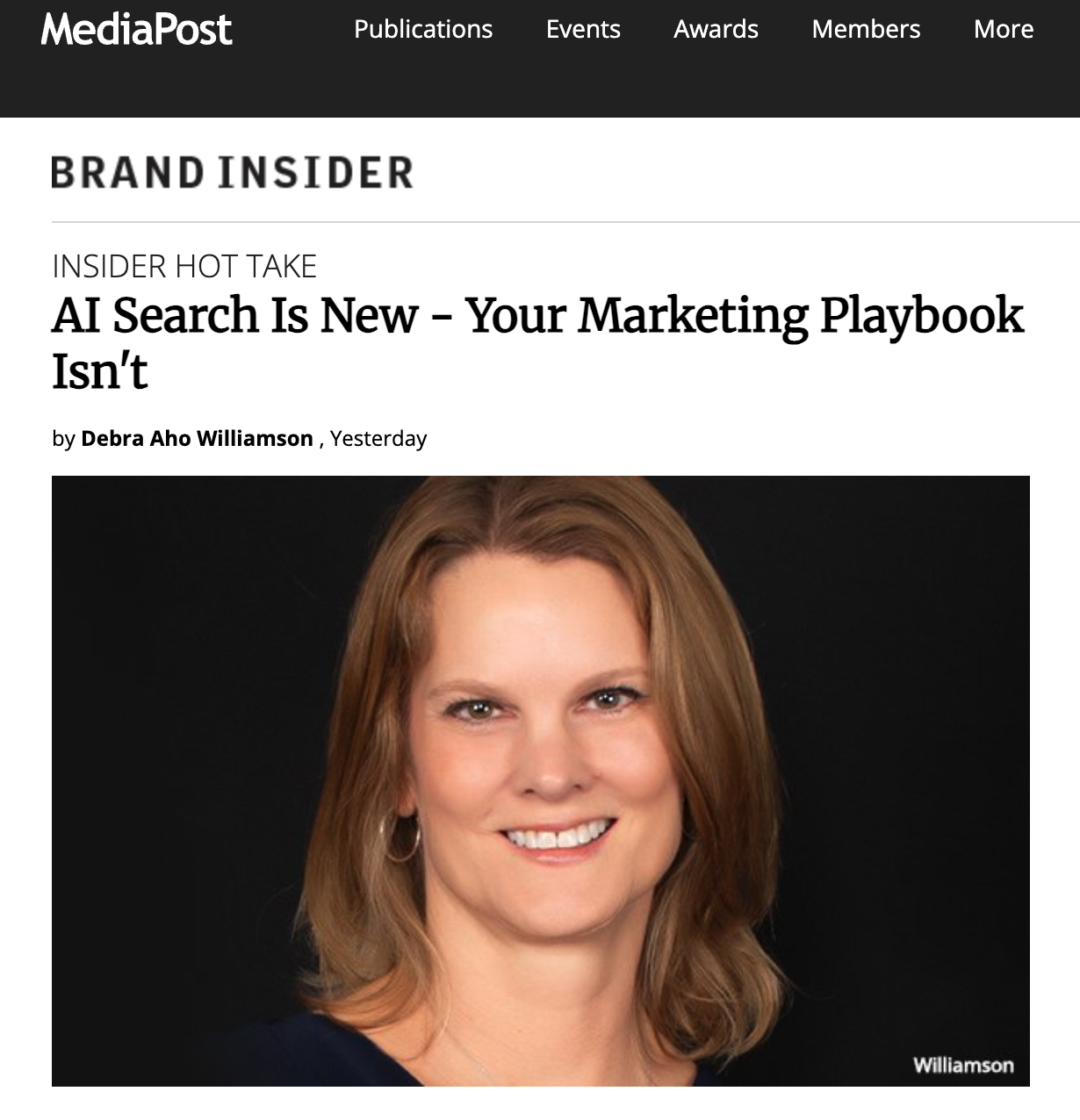AI Search Is New - Your Marketing Playbook Isn't
I just published my first column in MediaPost! Here’s a preview:
I bet you’ve heard the news: Search is changing.
When I first wrote about how AI search was impacting the consumer journey last year, it felt like a quiet undercurrent. Now, it’s a full-blown conversation across the marketing industry.
In the past several months, a wave of “AI search whisperers” — tech vendors, PR firms, SEO agencies, traditional agencies — have sprung up, hawking tools and advice to help brands show up in AI responses.
If you’re feeling overwhelmed, don’t panic.
Huge topic, even huger headshot.
Every major platform shift in digital marketing in the past few decades—the web, social media, mobile, to name a few—upended marketing strategies and spawned a cottage industry of specialists and agencies. AI search optimization is just the current wave.
It’s easy to see why there’s a rush. Consumers are becoming more likely to use AI platforms in their personal lives, not just for work. Among US adults who use generative AI, 67% do so for personal reasons or fun, far more than the 37% who use it for work, according to new research from Insights Exchange.
And one of the most common use cases is research and information. In an analysis of millions of ChatGPT queries by AI search optimization firm Profound, nearly a third (32.7%) could be classified as “informational” — second only to “generative” queries that ask for concrete output.
With this momentum, brands can no longer afford to treat AI search as tomorrow’s problem. Yes, changing strategies you’ve used for years can be overwhelming. But you’ve been here before, when the web, social media and mobile became playgrounds for new types of marketing.
Here are four things to do now, each grounded in lessons from previous tech cycles:
Read the full column on MediaPost here.

